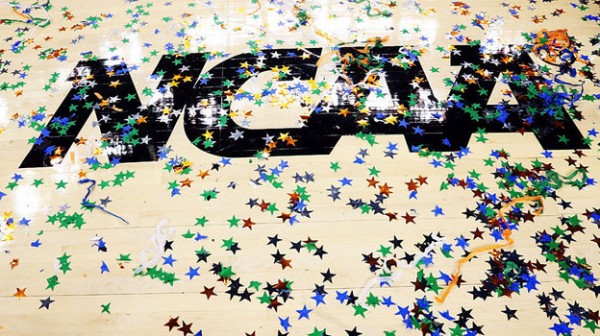Run and Hide: The NCAA Is Coming To A College Campus Near You
Posted by Chris Johnson on August 12th, 2013Chris Johnson is an RTC Columnist. He can be reached @ChrisDJohnsonn.
You can’t blame Jon Duncan for trying his level best. He assumed the NCAA’s Vice President of Enforcement position following the dismissal of Julie Roe Lach, one of the organization’s longest-tenured investigators, for her missteps in the investigation into rogue booster Nevin Shepiro’s alleged funneling of impermissible benefits to Miami football and basketball players. In the months since Lach’s dismissal, a swath of enforcement staffers have bolted on their own volition, the NCAA’s public approval rating has fallen to unforeseen depths, and the purpose of the organization’s sheer existence – long assumed a natural part of the college sports world order – has come under intense scrutiny from all corners. This is not a good time to be an NCAA enforcement official, and Duncan is merely attempting to do what’s best for the organization that employed him on an “interim basis” given the circumstances.

Improving the way the NCAA and athletic departments interact is a well-intentioned, yet mostly impractical, endeavor (Getty).
So when Duncan’s initiative to change the way enforcement staffers approach and conduct investigations was revealed last week, it was hard to view it as anything more than a feckless attempt to repair the NCAA investigators’ battered reputations. The most notable proposal was a program that plans to send members of the organization’s enforcement wing to various college campuses across the country. The hope, according to Duncan, who spoke to the Associated Press on Saturday, is to immerse enforcement folk in the culture and every day-operation of modern athletic departments.
“One of the things I hear is that our staff sometimes lacks an understanding of what campus life is really like,” Duncan said. “So we are piloting a program where our staff will work on campus with athletic directors, compliance staff members and coaches and walk in their shoes so that we have a true understanding of what goes on.”
On its face, a program that seeks to put estranged NCAA employees in direct contact with athletic directors and compliance officials sounds like a good idea. One of the biggest criticisms leveled at the organization in recent months is that its relationship with ADs and other school officials is distant and uncooperative, even nonexistent. Athletic directors see a system where school presidents are being asked to make important decisions about major conference athletics, while their more refined knowledge of the modern landscape – and their responsibility to implement those decisions and rule changes – is being almost completely ignored. (A swath of embittered athletic directors relayed their dissatisfaction off the record to Sports Illustrated’s Andy Staples earlier this year). Trying to establish a more fluid relationship between investigators and ADs is a promising start, and a good way to chip away at the rapidly deteriorating credibility the organization and its staff have spent months trying to repair, but at this point – with the NCAA’s amateurism philosophy hanging in the balance, and the creation of a new subdivision of major conference schools looming on the horizon – will the changes even matter?
It’s possible the organization’s relationship with the very schools enforcement staffers are visiting under this new plan could be completely different one year from now. The changes accompanying the separation of power conference schools into a new subdivision were vastly overstated when initial reports trickled out, but there appears to be a widely held consensus on at least one thing: The new division will operate under a new rules structure. That means, in essence, the rulebook Duncan and his staffers are trying to learn, and the protocol governing how to monitor the athletic departments the organization hopes to study and observe as part of Duncan’s new program, is subject to significant practical revision within the next year or two. Why, then, would it make sense to try and furnish a more workable relationship with athletic officials, to try and develop a better mutual understanding of the organization’s mission in policing a sea of vastly disparate athletic departments, when the rules currently in place (including, but not limited to, the outright prohibition of cost-of-living stipends above room and board scholarships) are all but guaranteed to be tweaked in the coming months? And that’s without considering the new penalty structure that went into effect just this month.
Duncan deserves to be applauded for his intentions – his proposal, were it implemented months before he inherited his current position, would make the most possible sense. Today, with the NCAA taking on water from all sides, and significant reorganization and rulebook-restructuring within at least one sector (call it “Division 4”) of its membership in the fore, the plan won’t yield the meaningful change it once could have.












































